Dyscalculia 101

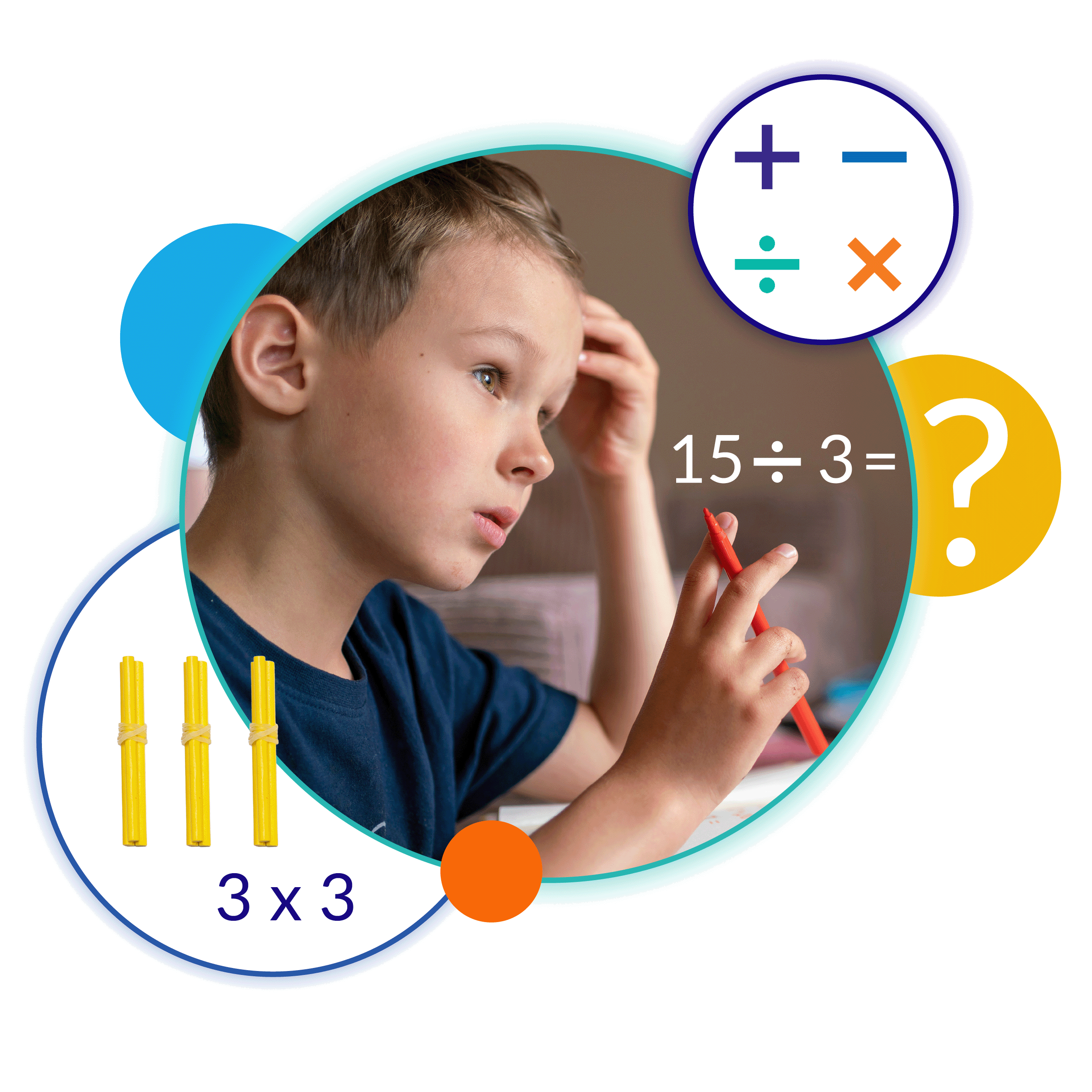
Dyscalculia: The Unaccounted-For Disability
Dyscalculia is a learning disability that affects one’s ability to learn math and may cause difficulty counting. recognizing patterns, telling time, having a sense of direction, and more.
Research shows that people with dyscalculia succeed in math when engaged in multisensory learning methods.
This is similar to how students with dyslexia, a disorder where you may have difficulties identifying how letters and words relate to speech sounds, may benefit from a multisensory approach.
Dyscalculia Statistics: Understanding the Numbers
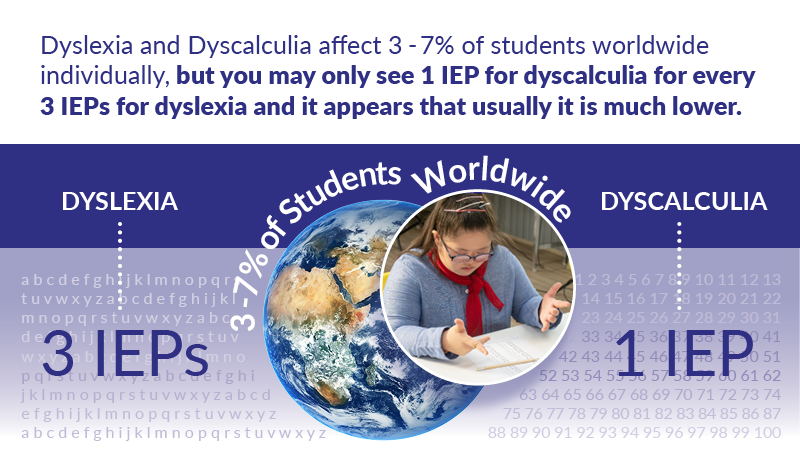
Screen for Dyscalculia as Early as Three
Our dyscalculia screener, DySc, is web-based and can be easily administered by early childhood educators and parents for learners 3-4, 5-7, 8 and up.
Free Dyscalculia Resources
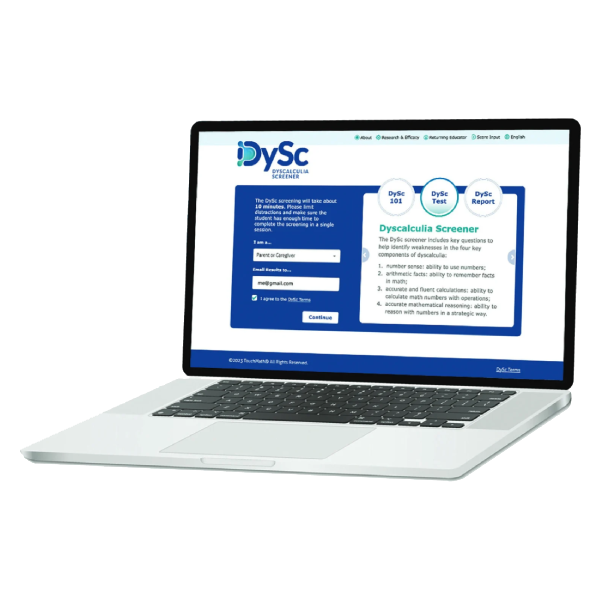
Dyscalculia Screener
Our comprehensive dyscalculia screener, DySc, is aligned to the American Psychiatric Associations DSM-5-TR and available at no cost to help identify weaknesses in four key components of dyscalculia.
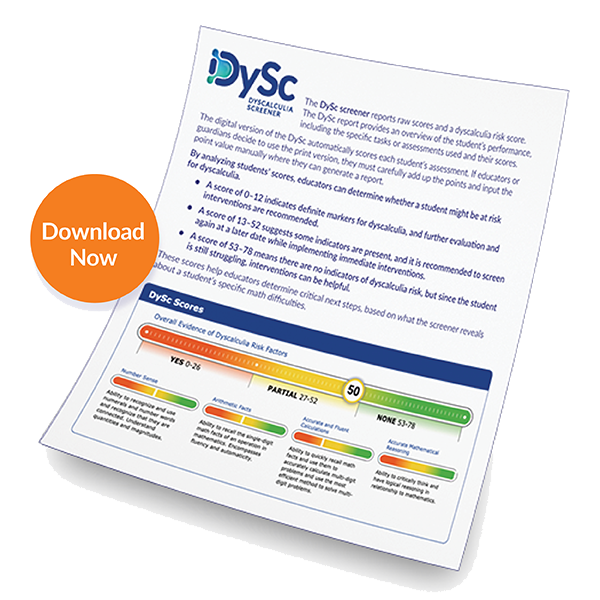
Dyscalculia White Paper
Get everything from what is dyscalculia to evidence-based strategies to support your students in achieving math mastery in our white paper, The Transformative Potential of Early Screening for Dyscalculia, The Discounted Specific Learning Disability.
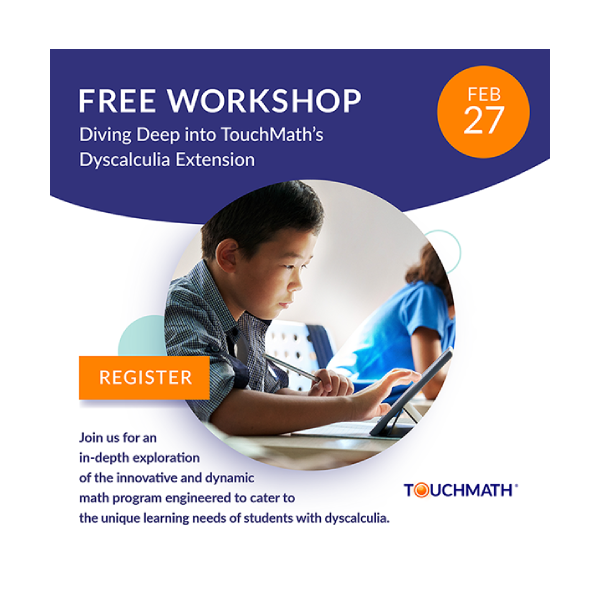
Dyscalculia Workshops
See what growing up undiagnosed with dyscalculia looks like, get lessons, and more with our library of workshop sessions.
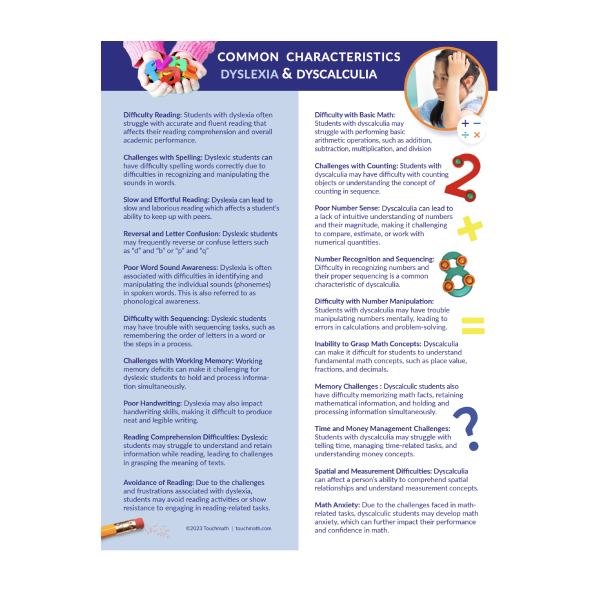
Dyscalculia Knowledge Center
Want more on dyscalculia and TouchMath? Check out our Teacher’s Lounge for blogs, resources, and more!
Want More Resources on Dyscalculia?
We've got you covered! Check out our latest blogs below.
Why Vocabulary Matters for Early Math Success
Why Vocabulary Matters for Early Math Success Math is more than numbers — it’s a language of its own. And like any language, fluency starts with vocabulary. From “add” and “equal” to “fraction” and “polygon,” math terms give meaning to
From Tavern Game to Teaching Tool: The History of Shut the Box and the Power of Hands-On Math
From Tavern Game to Teaching Tool: The History of Shut the Box and the Power of Hands-On Math Math often gets a bad rap—especially in the early years. It can feel abstract, intimidating, or simply disconnected from the world children
Multisensory Math: The Key to Rising Math Scores
Multisensory Math: The Key to Rising Math Scores Math has long been considered a challenging subject for many students, particularly those in special populations who often struggle with abstract concepts. But what if we told you that the key to
Why Vocabulary Matters for Early Math Success
Why Vocabulary Matters for Early Math Success Math is more than numbers — it’s a language of its own. And like any language, fluency starts with vocabulary. From “add” and “equal” to “fraction” and “polygon,” math terms give meaning to
From Tavern Game to Teaching Tool: The History of Shut the Box and the Power of Hands-On Math
From Tavern Game to Teaching Tool: The History of Shut the Box and the Power of Hands-On Math Math often gets a bad rap—especially in the early years. It can feel abstract, intimidating, or simply disconnected from the world children
Why Vocabulary Matters for Early Math Success
Why Vocabulary Matters for Early Math Success Math is more than numbers — it’s a language of its own. And like any language, fluency starts with vocabulary. From “add” and “equal” to “fraction” and “polygon,” math terms give meaning to
Download: 10 Common Signs of Dyscalculia
Want the latest and greatest on dyscalculia and math interventions from TouchMath?
Complete the form to get monthly updates, resources, articles, Fun Sheets and more! Once submitted, you will get immediate access to our downloadable, 10 Common Signs of Dyscalculia.



